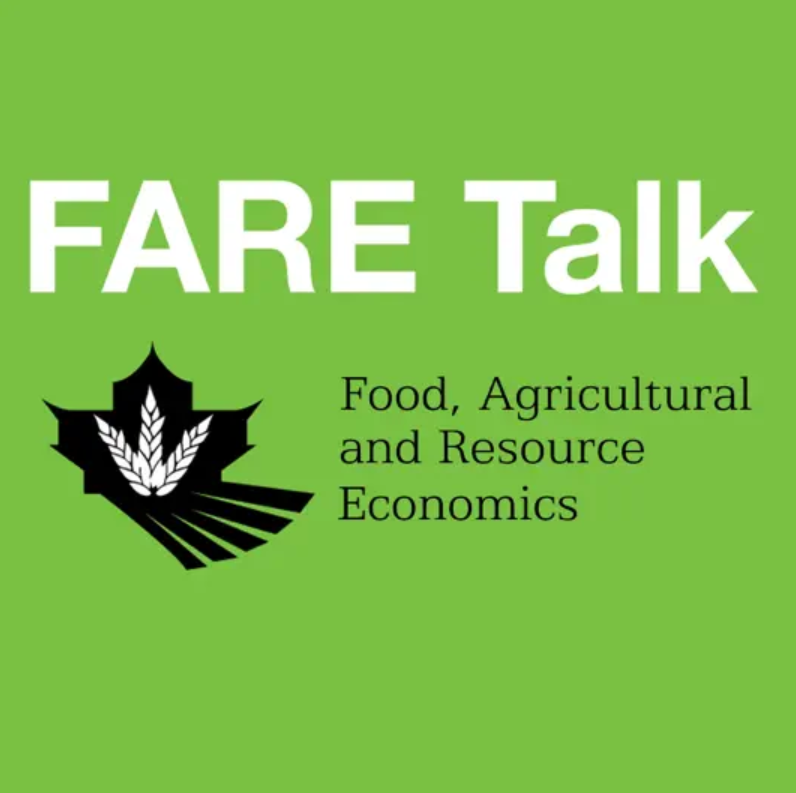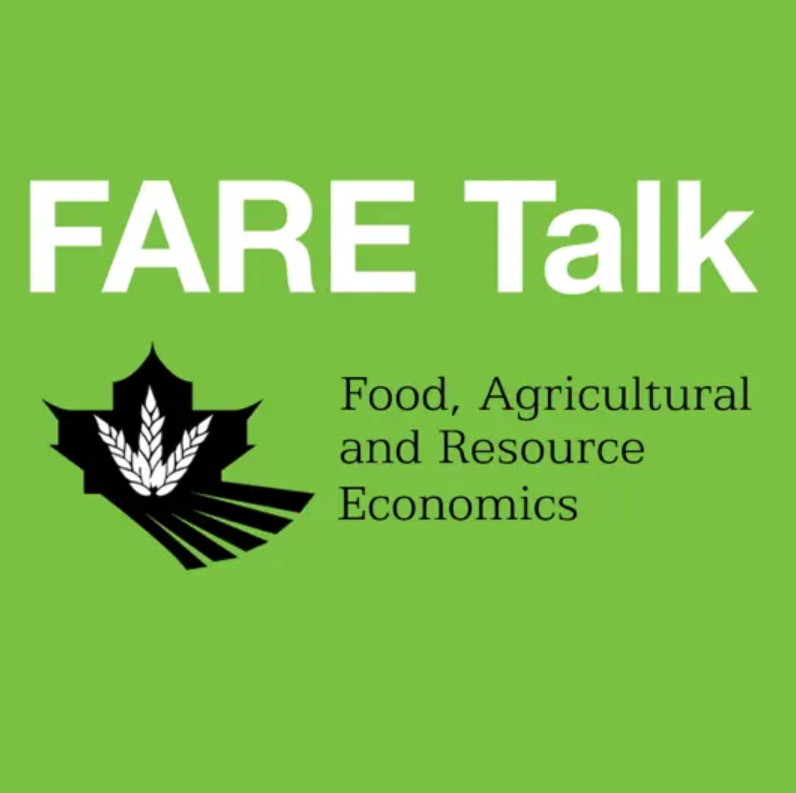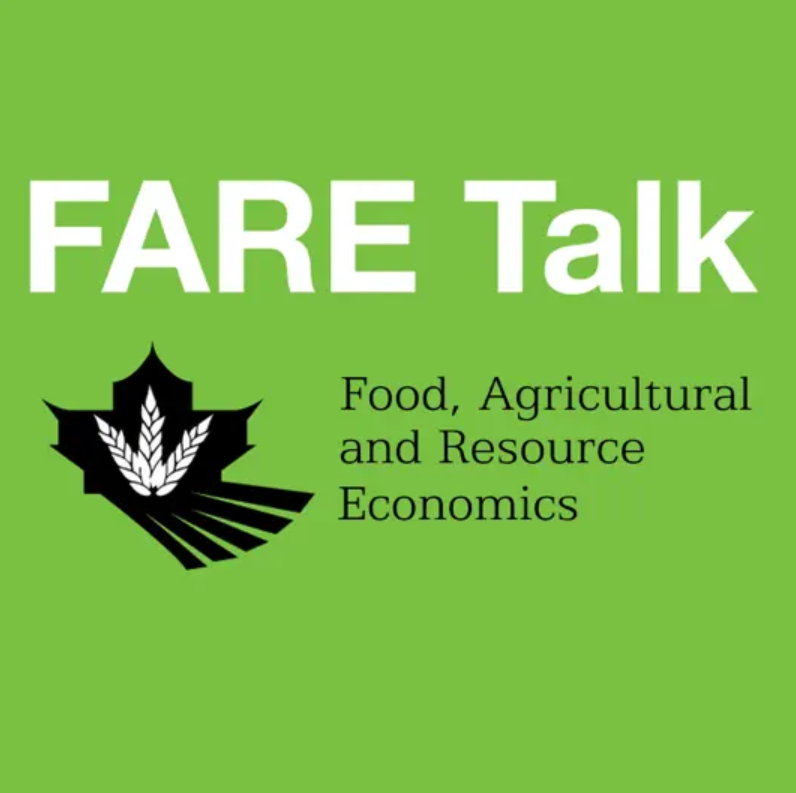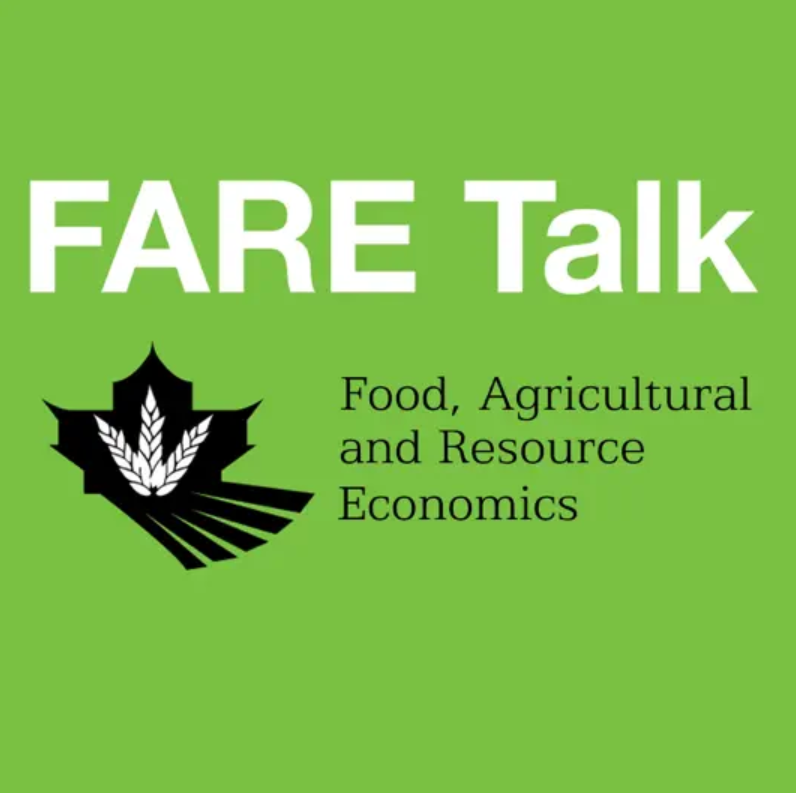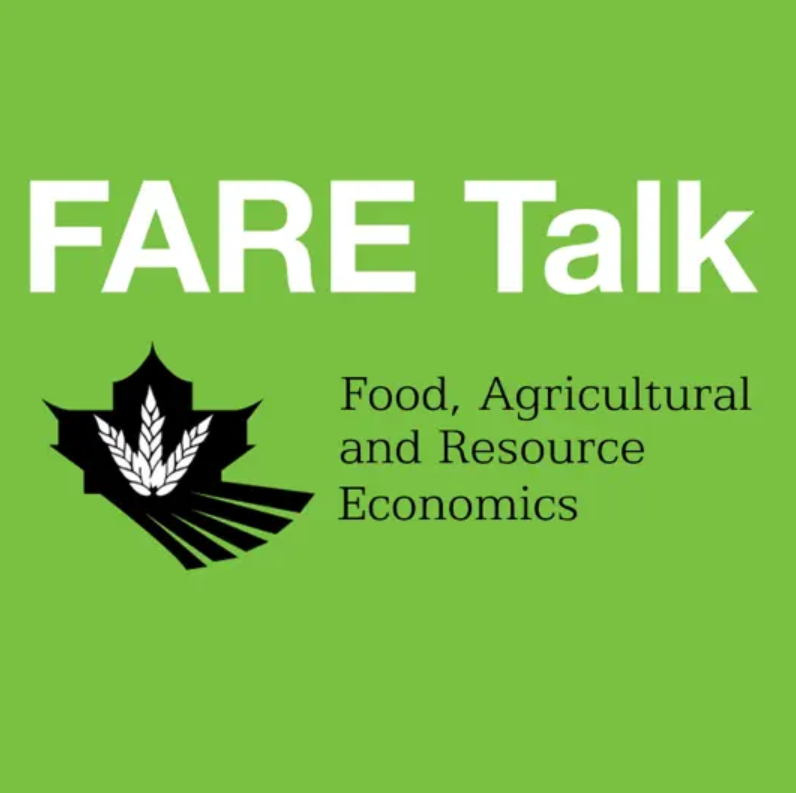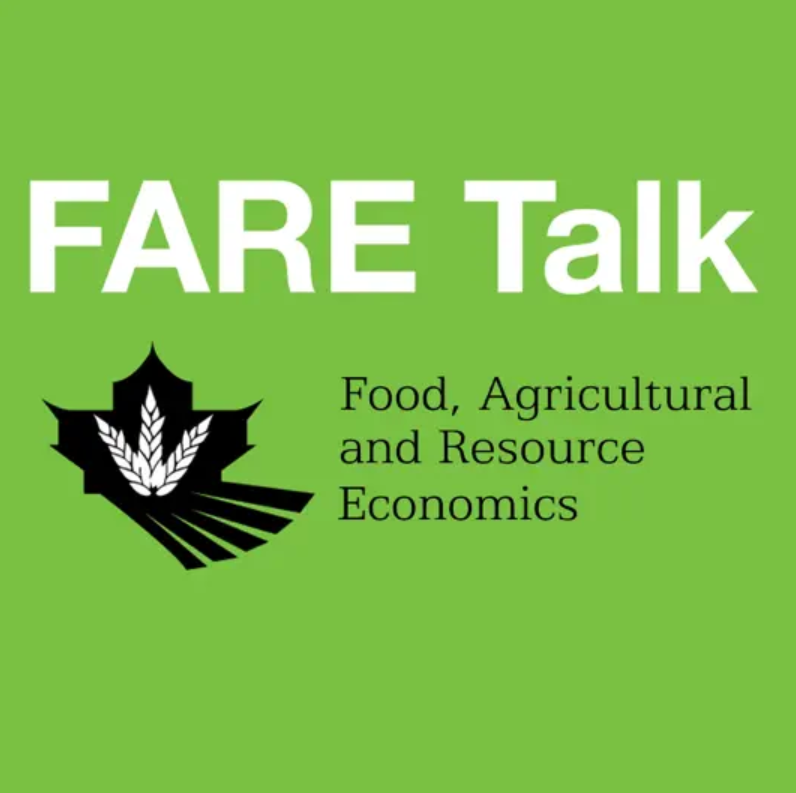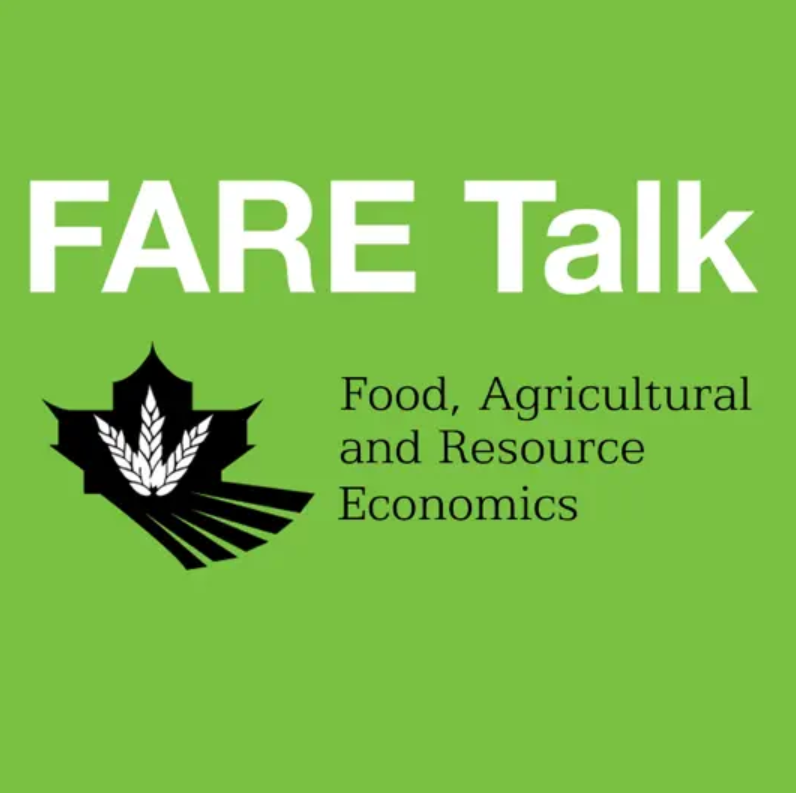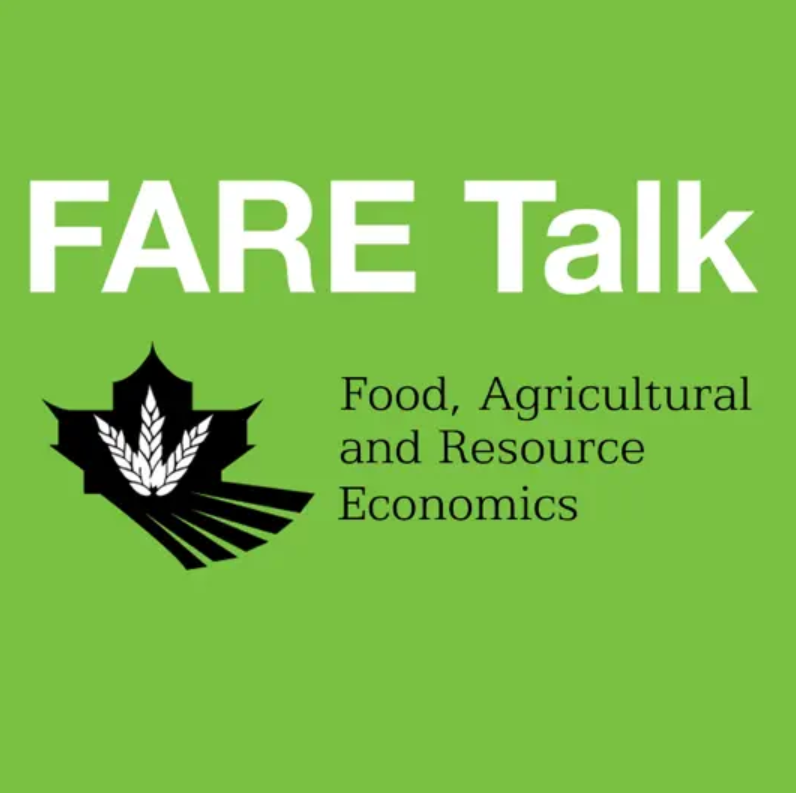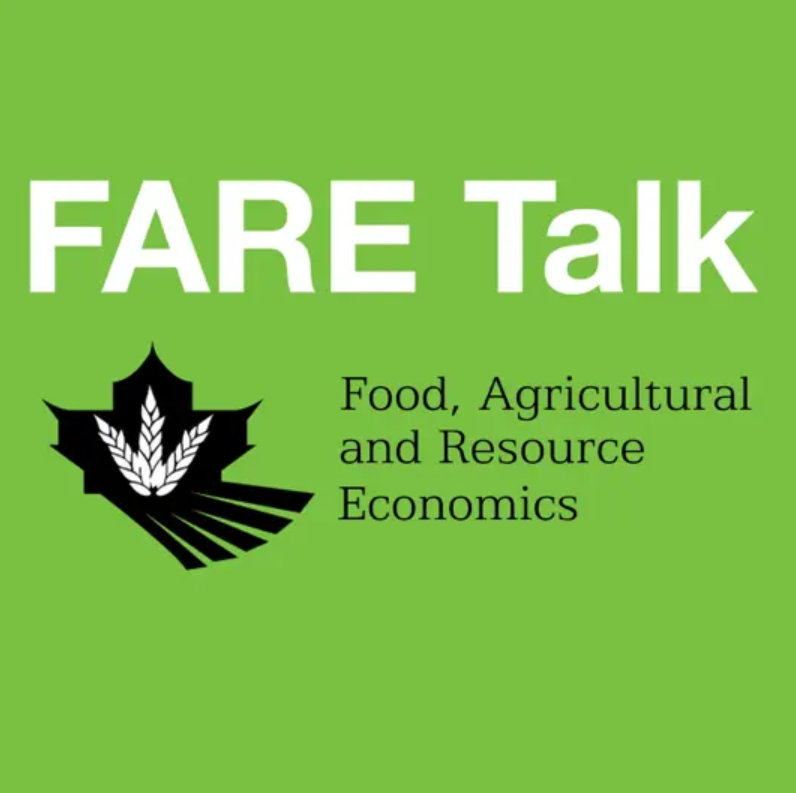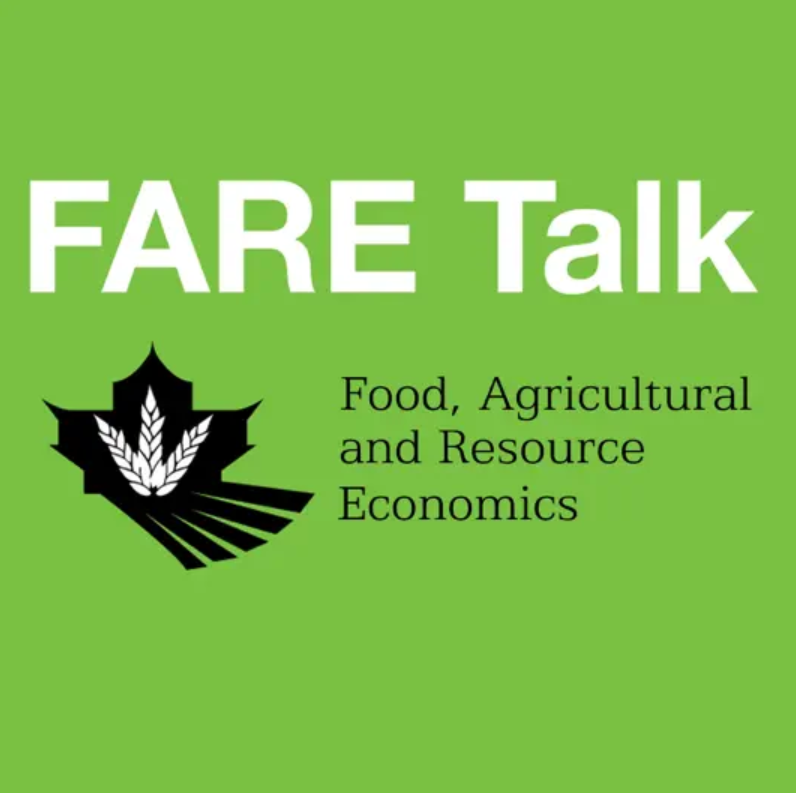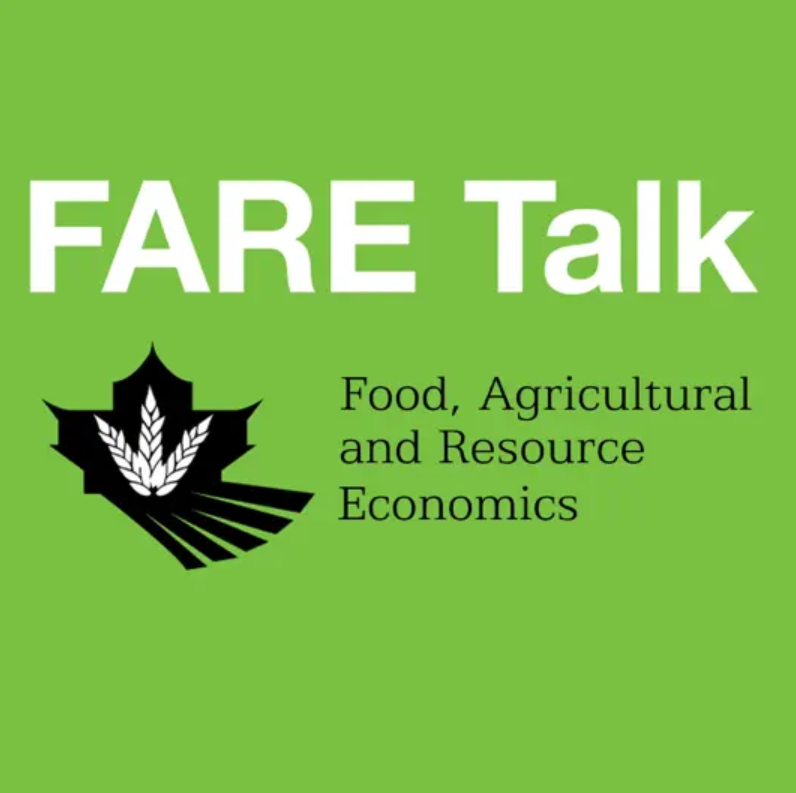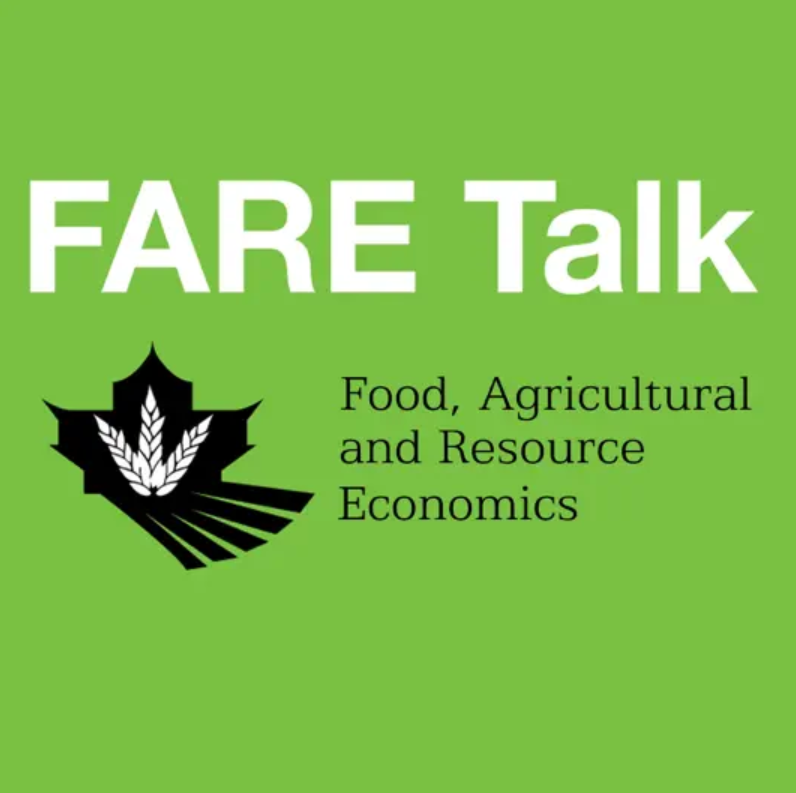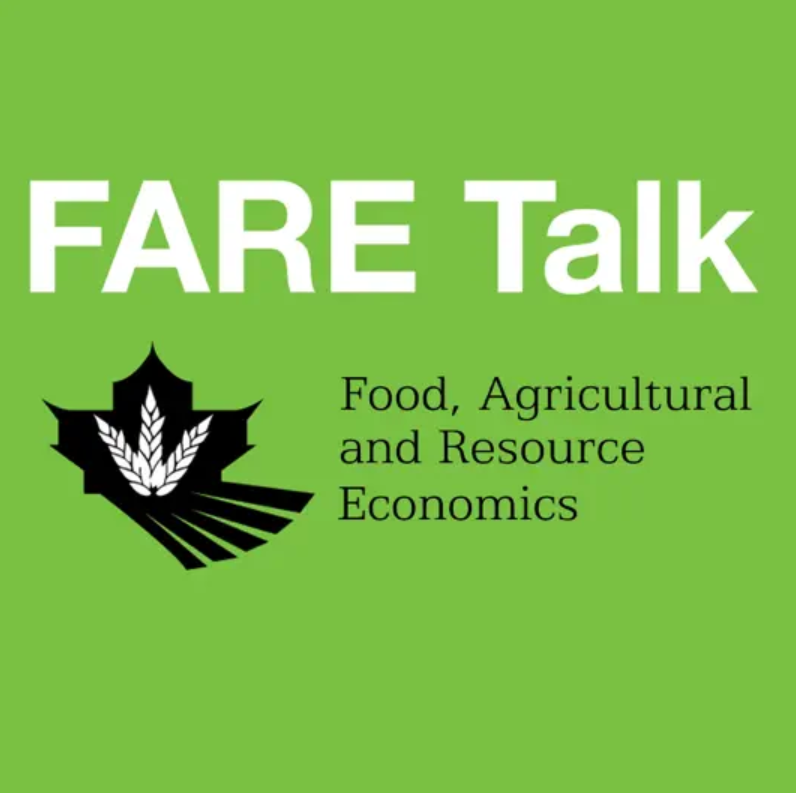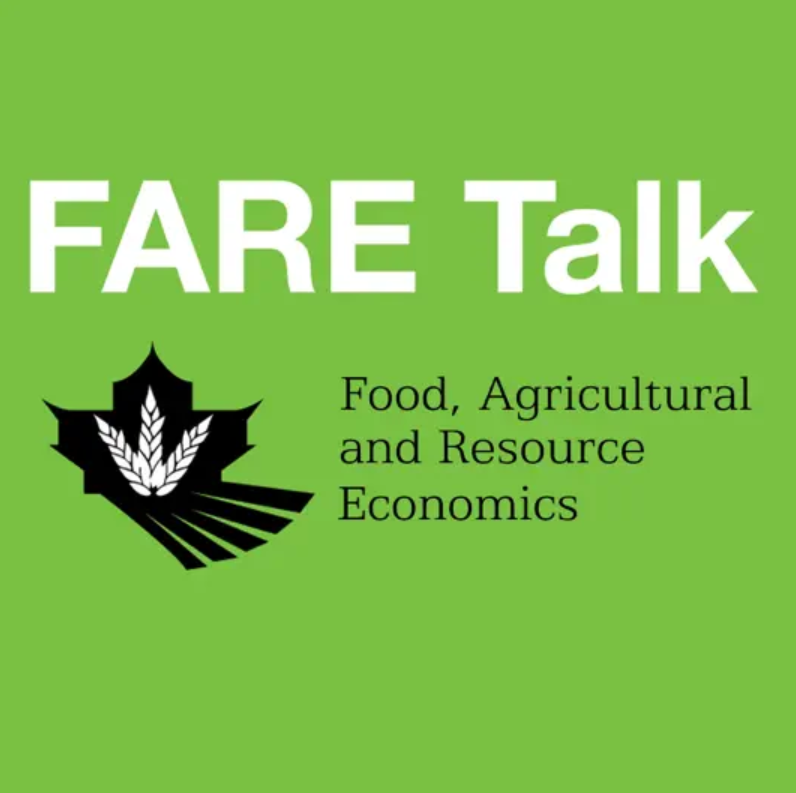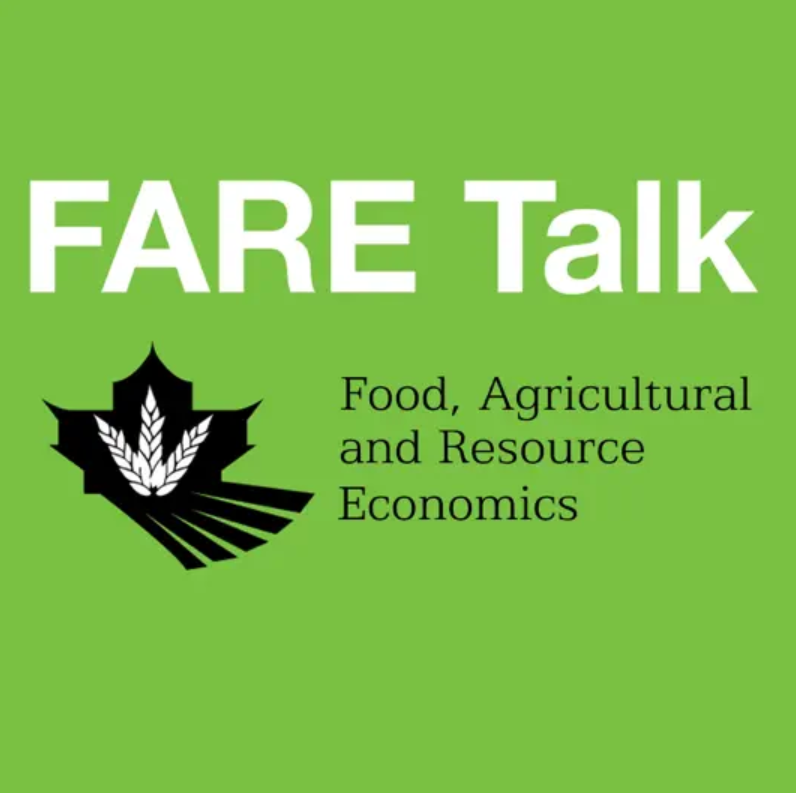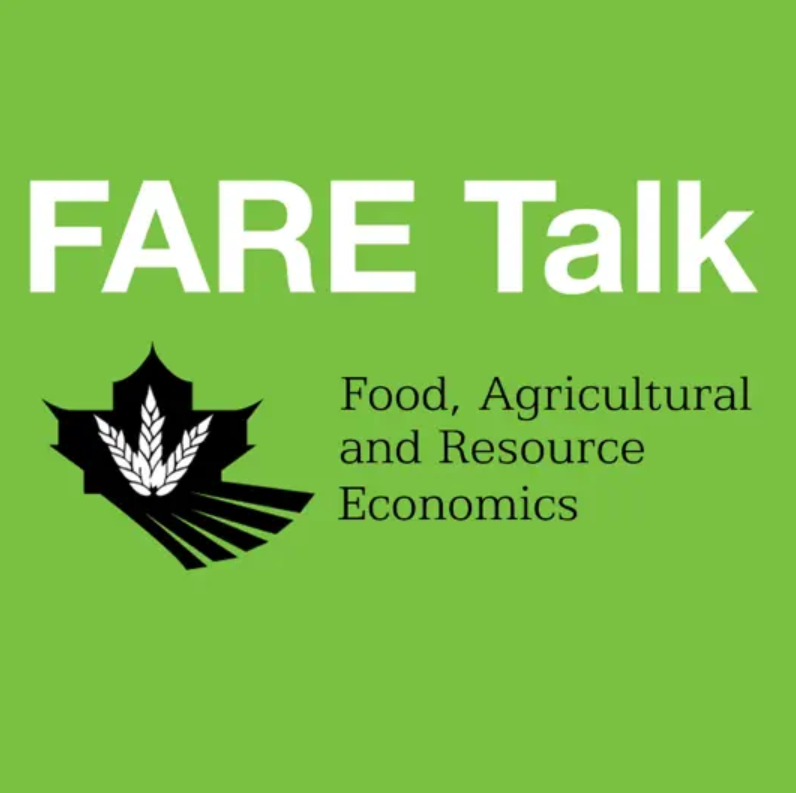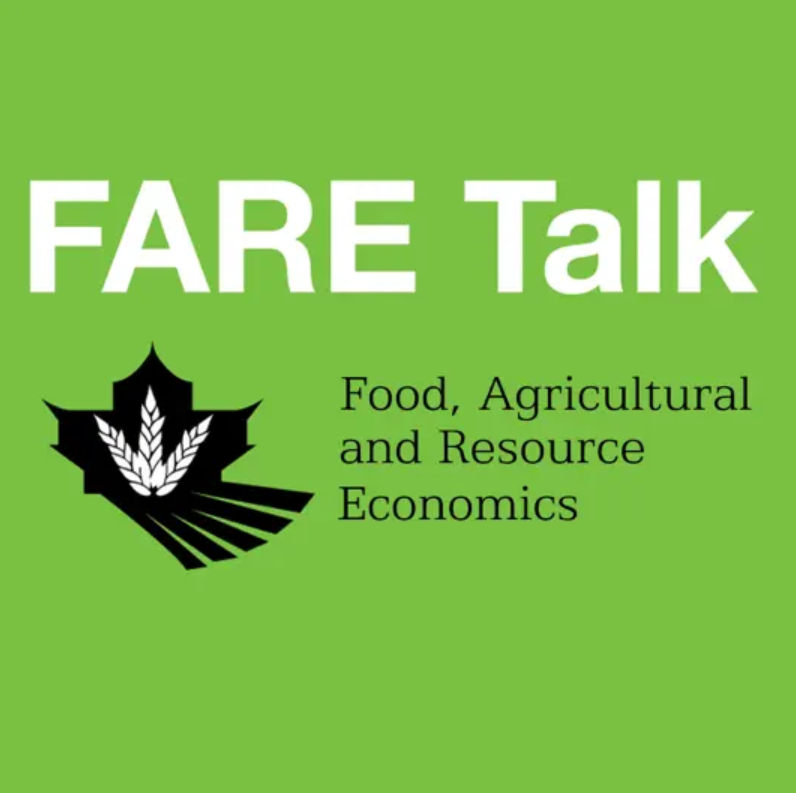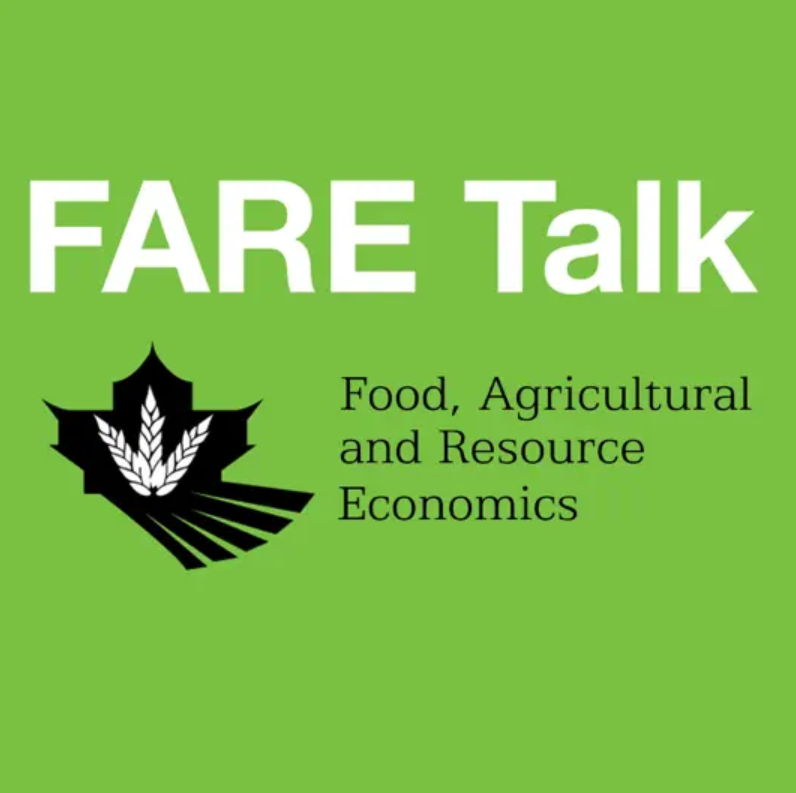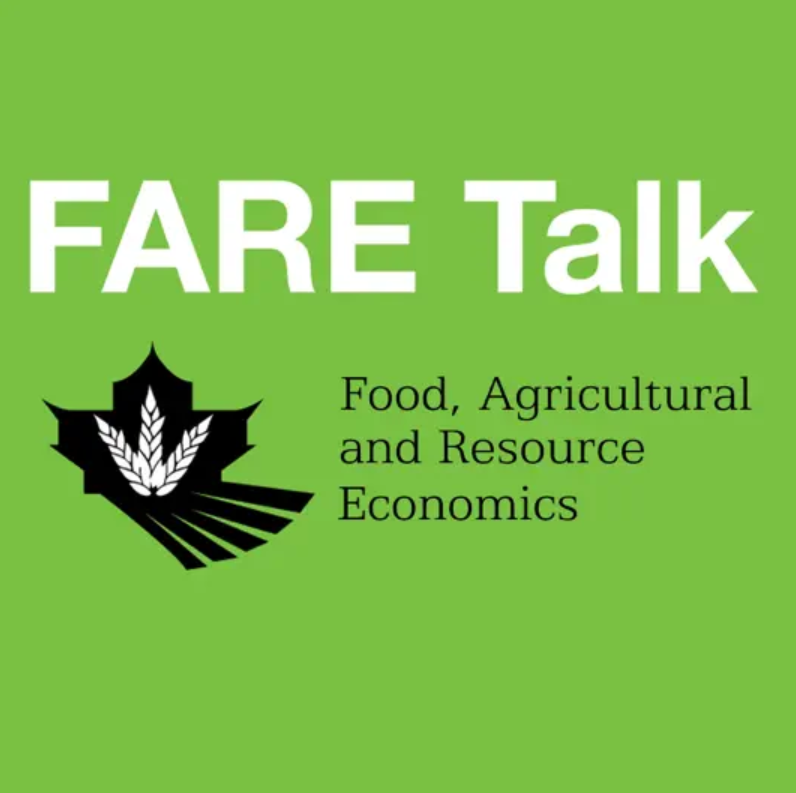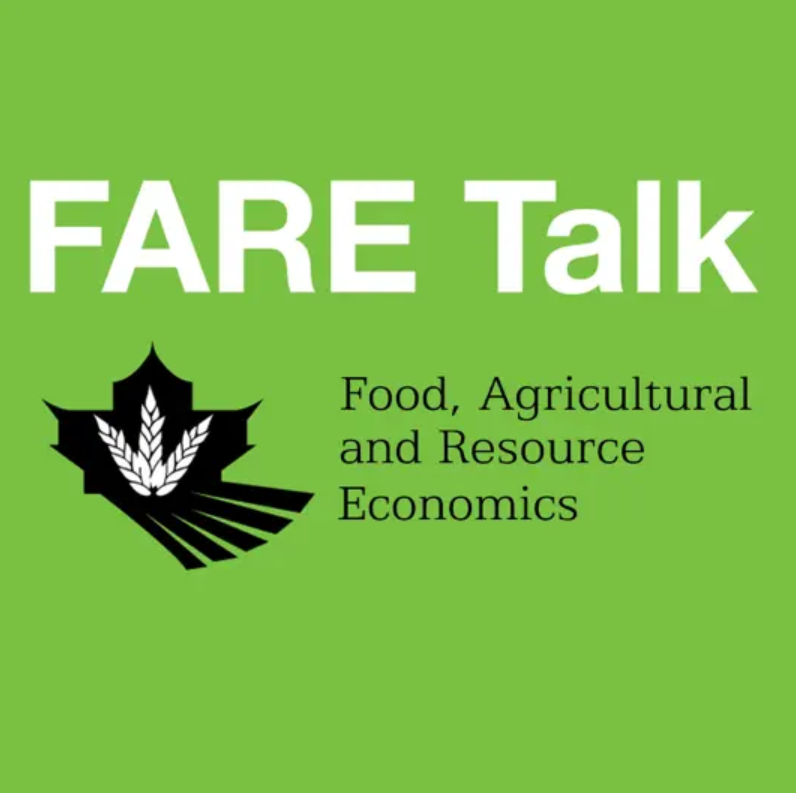"Beyond the Indian Act": Examining the Potential Role of Fee-Simple Ownership - December 17th, 2012
Description
In this podcast Dr. Tom Flanagan, myself, and students from the University of Guelph discuss Tom's research examining First Nations and private property rights.
Transcript
Brady Deaton Jr.: Welcome to FARE-talk where we set out to provide enduring discussions on contemporary topics relevant to our economy with particular emphasis on food, agriculture, and the environment. My name is Brady Deaton, Jr. Of the Department of Food, Agriculture and Resource Economics at the University of Guelph. I'll be your host.
Tom it's my pleasure to welcome you to FARE-talk. Tom Flanagan is professor of political science at the University of Calgary. He is the author of numerous books, many of which have won prizes. The book that we'll be discussing today he co-authored and the title of that book is Beyond the Indian Act, restoring aboriginal property rights. Tom, welcome to FARE-talk.
Tom Flanagan: [inaudible 00:00:53 ] good to be here.
Brady Deaton Jr: I should also for those people who will be listening to this podcast, this is a bit of an experiment. We're doing this podcast with Tom over video in a classroom setting where students from Land Economics will be participating in the podcast discussion.
Tom, just to get the ball rolling, give us a bit of a background of property rights on First Nations and the consequences that have motivated your interest in this area.
Tom Flanagan: Yeah. Well I think many of the problems that people point to that First Nations have - low incomes, bad housing conditions, various social pathologies, high rates of alcoholism and drug abuse and family breakdown and so on - a lot of these things have deeper causes in the absence of property rights. To give an example today is National Housing Day and Shawn Atleo the grand chief of the Assembly of First Nations published an editorial in the National Post this morning talking about the sad state of First Nations housing.
He says there's a shortage of 85,000 homes for First Nations people on reserves. He also cites the Statistics Canada figure that 42% of existing housing is in need of repair. Now that's an astonishing figure, over 40% of housing is, and we're not just talking about a new coat of paint. Statistics Canada talks about needing repair they're talking about more serious structural features.
Well, why is that? Well surely one of the main reason is that all the land on the Indian Reserves is owned by the government. Indians don't own the land, either collectively or individually. They can own a house but most don't. The houses are mostly provided for them by [banned 00:02:53 ] governments. There's never enough supply of housing and what there is, is not well maintained, in contrast to the larger society where shortage of housing is sometimes an issue, but pretty much a marginal issue. There's maybe 1% of the Canadian population at large that don't have safe, warm housing.
So you can talk about housing as a problem, but the underlying problem is an absence of property rights which would enable a housing market to operate. It's housing markets that give us owner occupied or rental housing in the rest of the country, but those housing markets don't operate on reserves. So there's one example of how standard of living is impacted in a very real way by an absence of property rights.
Brady Deaton Jr: So, if we were to look at the lay of the land on First Nations reserve areas today, what would we see in terms of those underlying property rights? There's leases, what other ...
Tom Flanagan: Well there are some, there are sort of quasi property rights. There's very little of free holder or fee simple land of the kind that is the main property right off reserve in Canada. Fee simple does exist in a few special cases like on the [Iska 00:04:08 ] Reserve. But it's pretty marginal. So there are three types of existing property rights. One is customary rights which are widespread, but nobody really knows how widespread. Nobody keeps a complete record of them. But these are just based on occupation of land, often for generations, by families who may have houses or may have farmed it. But it's never been approved in any formal way by Band Council or the Minister. It's not enforceable in court. It may be recorded. Some bands keep registries of land, but if it hasn't ever been legally approved, it's not enforceable in court. Nonetheless, there's a lot of it and many people lives are based on it.
Second form is the certificate of possession, which is formally approved by the Band Council and the Minister. There are about 44,000 certificates of possession in operation now on reserves. So that's a lot. And some reserves are almost entirely certificated like the First Nations, Six Nations Reserve close to, not that far from your university. And certificates are enforceable in courts. So they are a pretty strong form of title. The main limitation on them is that they can only be sold to another member of the same band. So there's virtually no market for certificates of possession.
So that means that if you're on a reserve where certificates are accepted, you can get one and you can perhaps build a home on that piece of land, and you might even be able to get a mortgage if you can get the Band Council or some other third party to guarantee the mortgage. But the home doesn't become a savings vehicle. It's a place to live and you can leave it to your heirs. And that's good but it's - for most of us the home is the best investment we'll ever make because your wealth grows in it as the price of housing increases. But that doesn't happen where there is no housing market.
And then the third form of property right is the lease. And the Indian Act has several provisions that underlie leasing arrangements. Certificates of possession can be leased and that's the basis of the prosperity of the Westbank Band in British Columbia is leasing of certificated land by individuals. Or the band can lease band land for major projects. There's lots of examples of that in Canada. It could be to casinos or hotels for golf courses, shopping centers, industrial parks, or residential housing developments. The lease is in some ways the strongest form of property, because once it's signed it's tradable in the market. It can be sold. And so there is a re-sale market for leases, so they don't have the weakness of certificates of possession. However the weakness of the lease is by definition it's time limited, 39 years, 49 years, 99 years, whatever. It's not as strong in that sense as fee simple ownership. The best guess is that under good conditions a 99-year lease might be worth about 80-90% of the value of fee simple ownership. But conditions aren't always that good. Some leases are written only for 39 or 49 years and they are worth quite a bit less than the fee simple value of the land would be.
So anyway, these are the three existing forms of property rights on First Nations land. So the suggestion of our book is that the fee simple ownership should become a fourth option. Nobody would be forced to adopt it but ought to be possible for First Nations who want to, to have that chance.
Brady Deaton Jr: Just for some of the listeners who might be listening in. When you think about fee simple, how do you define that or what's the kind of lay version of what you mean by that?
Tom Flanagan: Well, fee simple ownership like any form of ownership is the right to use the land, have the right to exclude others from use of it and the right to dispose of it through sale or gift or lease or whatever. So it's a complete ownership restricted only by the laws of general application such as zoning laws or environmental laws, nuisance laws and things like that. That's the normal form of ownership of land in the rest of Canada so all the students I'm looking at probably - You're probably too young, most of you to own your own home but I suspect in most cases your parents own homes. And that would be fee simple ownership.
And so it hasn't been available to people on First Nations land up to this point. So we would like to make that available as an option because it's a more flexible form of ownership. It's a better store of value. It appreciates over time because you can have a resale market for it. You can get a mortgage based on it. You can build a home on a reserve if you have a customary right or a certificate of possession but the bank won't give you a mortgage to do it unless some third party guarantees the mortgage because they can't seize the land because no outsider can own the land. But if the fee simple regime were introduced a bank would be able to seize land for non-payment of a mortgage as it would for anybody else because under that regime an outsider would be able to own land on an Indian reserve, which is presently impossible.
Brady Deaton Jr: Alright. I'm going to turn it over to students for questions in a minute. But before I do that let me just ask you to maybe state the essential elements of the reforms that you and your co-authors are suggesting.
Tom Flanagan: Well, the first step would be to pass legislation and that legislation is currently being drafted. It's called the First Nations Property Ownership Act. At one time we were hopeful that it might be introduced by the end of 2012. Now I think probably early 2013 is more likely. But anyway, the government is working on it.
Once the legislation was passes that would make it possible for First Nations to opt into that regime. And that would mean opting out of the Indian Act with respect to the various land provisions in the Indian Act, whi

